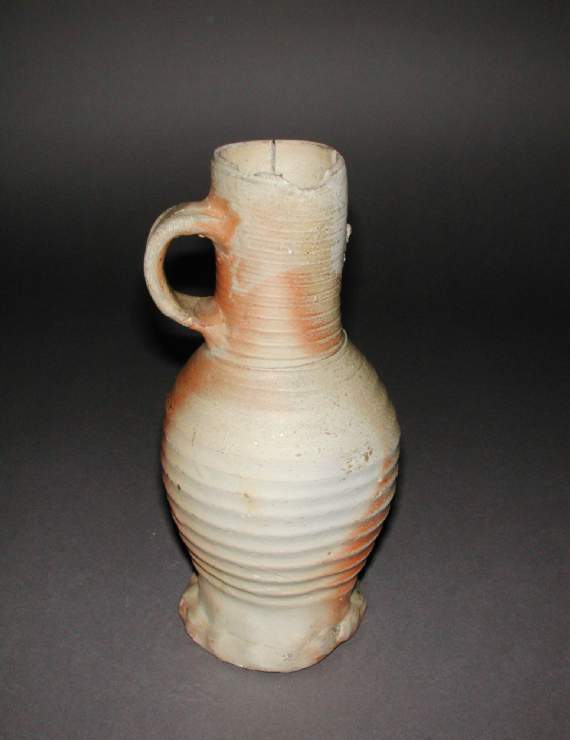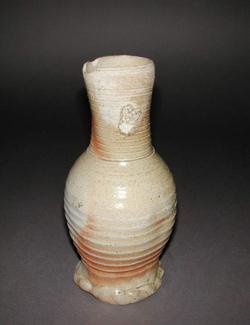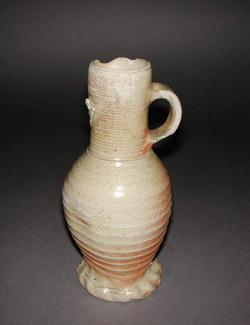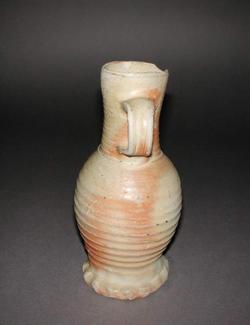Current Location: Gallery 27 (Glaisher)
Maker(s)
Production:
Unidentified Siegburg pottery
Entities
Categories
Description
Grey stoneware, thrown, and thumbed, with an applied handle, and areas of clear glaze. The jug has an ovoid body standing on aslightly spreading thumbed base, It has a tall narrow neck to which is applied a small ring handle with a slight vertical depression. There is widely spaced rilling on the body and more closely spaced rilling on the neck. Parts of the neck and body have fired to a gingery-brown shade. A fragment, probably from another vessel has adhered to the neck, on the opposite side to the handle.
Notes
History note: Dug up at Ryswick about three years previously; J Hangjas, 106 Wagenstaat, The Hague, from whom purchased on 6 June 1912 for 6 gilder (12 francs) by Dr J.W.L. Glaisher, FRS, Trinity College, Cambridge
Legal notes
Dr J. W. L. Glaisher Bequest
Measurements and weight
Height: 21.5 cm
Width: 10.5 cm
Acquisition and important dates
Method of acquisition: Bequeathed
(1928-12-07)
by
Glaisher, J. W. L., Dr
Dating
Late Medieval
Circa
1400
-
1500
Note
This jug, which was excavated at Ryswyck in the province of South Holland in the Netherlands, was one of huge numbers exported from Siegburg to the Low Countries from the mid 13th century onwards. Production was at its height during the 15th century. This form is known as a Jacoba-Kanne or Jacobakanne. The term is thought to derive from finds of jugs in the moat of Teylingen Castle, in the Netherlands, where Countess Jacoba of Bavaria was impressoned from 1433-36. It was first used by Cornelis van Alkemade (1654-1737), a Dutch historian an antiquary, in the early18th century.
School or Style
Late Medieval
Components of the work
Foot
Diameter 9.1 cm
Base
Body
Materials used in production
Stoneware
References and bibliographic entries
Identification numbers
Accession number: C.2004-1928
Primary reference Number: 72990
Old object number: 3446
Stable URI
Audit data
Created: Saturday 6 August 2011
Updated: Tuesday 30 April 2024
Last processed: Tuesday 15 July 2025
Associated departments & institutions
Owner or interested party:
The Fitzwilliam Museum
Associated department:
Applied Arts







